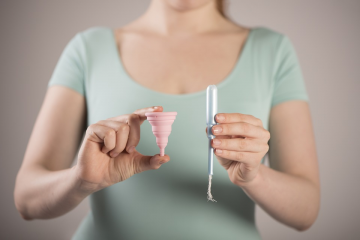Why is it not good to litter?
Why is it not good to litter?
In addition to water and soil pollution, litter can also pollute the air. Researchers estimate that more than 40% of the world’s litter is burned in the open air, which can release toxic emissions. These emissions can cause respiratory issues, other health problems, and even be a starting base for acid rain.
How can we encourage not littering?
Prevent litter everyday
- put your rubbish in a bin.
- take your rubbish with you if no bin is available.
- keep a bag in your car to collect rubbish.
- put your cigarette butt in a butt bin, or an ordinary litter bin when extinguished.
- keep a container in your car to collect cigarette butts.
Why is litter bad for kids?
Litter can attract rats and vermin and cause health problems. It can also harm animals and wildlife, and ruin the quality of water when thrown into rivers or lakes. Polluted water isn’t safe to drink, and polluted soil can’t grow plants and food to eat.
How can littering affect humans?
Littering Leads to Soil, Water, and Air Pollution The soil absorbs the toxins that litter creates and affects plants and crops. Humans can also become sick, eating animals that have ingested compromised water. The litter is often put on fire as an easy way to get rid of the litter, which can also lead to air pollution.
What would happen if we stopped littering?
When waste isn’t properly disposed of in the correct bins there’s less chance of recycling. The litter ends up in our water systems, it ends up in the digestive tracts of our wildlife, it ends up smothering plants, and reduces air quality due to smell and toxic chemical vapors coming from it.
How much does the average person litter?
According to the EPA, the average American person will produce about 5.91 pounds of trash, with about 1.51 pounds being recycled; 4.40 pounds is the rough average daily waste per person.
What can be removed to fix littering?
8 Ways to Stop Littering
- Carry a shopping bag.
- Buy a water bottle.
- Carry your own mug to a cup shop.
- Shop in bulk.
- Dispose of your rubbish in the right place.
- Carry a trash bag while travelling.
- Compost.
- Refuse single-use items.
What will happen if we stop littering?
Simply put, destroying it. When waste isn’t properly disposed of in the correct bins there’s less chance of recycling. The litter ends up in our water systems, it ends up in the digestive tracts of our wildlife, it ends up smothering plants, and reduces air quality due to smell and toxic chemical vapors coming from it.
Do you not litter facts?
Here are some facts about littering that may come as a shock to you.
- Nearly all Litter Ends up in the Ocean.
- Littering Costs us all Money.
- Cigarette Butts Pose a Serious Problem.
- The most Littered Item is Fast Food Packaging.
- People on the Move are More Likely to Litter.
- Litter Harms Economic Growth.
What is the most littered item in the world?
cigarette butts
Each of 30A’s recycled shirts takes 8 plastic water bottles out of our oceans and landfills. While we continue the battle on plastics, reports indicate that cigarette butts are the single most littered item in the world, surpassing plastics with 2 billion pounds of butts tossed aside annually.
What are the effects of garbage?
The more emissions that we produce due to how much trash we generate, affects us long term. One can develop diseases such as asthma, birth defects, cancer, cardiovascular disease, childhood cancer, COPD, infectious diseases, low birth weight, and preterm delivery.
What are the diseases caused by garbage?
Bacteria, insects and vermin thrive from garbage By doing so, they increase the risk of you contracting with salmonella, which causes typhoid fever, food poisoning, enteric fever, gastroenteritis, and other major illnesses.


